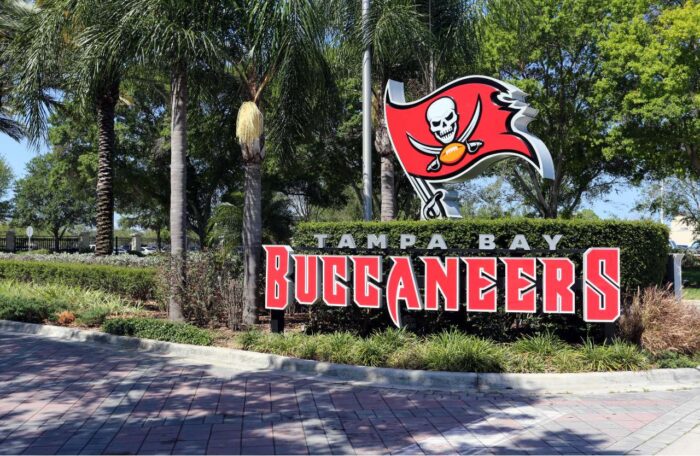Top Class Actions’s website and social media posts use affiliate links. If you make a purchase using such links, we may receive a commission, but it will not result in any additional charges to you. Please review our Affiliate Link Disclosure for more information.

Update:
- The National Football League’s Tampa Bay Buccaneers have agreed to pay up to $19.75 million to resolve claims it sent out unsolicited advertisements over fax.
- The Buccaneers had been accused of violating the Telephone Consumer Protection Act.
- The settlement resolves allegations stemming back to 2013.
- Plaintiffs claimed the Buccaneers sent more than 300,000 unwanted faxes and that individuals who received them had no way to reject them.
- Eligible class members are individuals who received at least one ticket-related advertisement over fax for Buccaneers games in 2009 and 2010.
- Eligible class members will receive between $350 and $650 in total compensation.
(03/04/2017)
A settlement agreement in a class action lawsuit alleging the Tampa Bay Buccaneers violated the Telephone Consumer Protection Act when they sent customers “junk” faxes was preliminarily approved by a Florida federal judge.
According to documents filed with the court, the Tampa Bay football team will agree to pay $19.5 million to settle claims that it sent unsolicited faxed ads for game tickets in 2009 and 2010.
The plaintiffs alleged that the unwanted faxes violated consumers’ rights under the TCPA.
The class action was brought by a business, Technology Training Associates Inc., who alleged that the Buccaneers sent out more than 300,000 unwanted taxes. The plaintiff said the faxes included no options for individuals to stop receiving the messages thus violating the TCPA.
In the U.S. Magistrate Judge Anthony E. Porcelli’s order granting preliminary approval of the settlement agreement, he noted that the Buccaneers’ decision to fax game ticket advertisements “spawned” five separate lawsuits of which he is aware.
The plaintiffs in a separate class action, Cin-Q Automobiles Inc., attempted to intervene in the settlement agreement, but Judge Porcelli denied their attempt. Cin-Q had wanted to consolidate the cases and appoint their attorney to represent the proposed Class.
“As evidenced by the lengthy and detailed procedural history in the Cin-Q action, the parties can reasonably anticipate similar procedural hurdles, a lengthy duration, and great expense to both parties if they are forced to litigate the issues present in this action,” wrote the judge in his order.
According to the order granting preliminary approval of the settlement, more than 343,000 faxes were allegedly sent by the Buccaneers to more than 131,000 unique fax numbers. Class Members are expected to receive payments of up to $350 for the first fax and up to $565 total for other faxes.
Class Members include “[a]ll persons who, in 2009 or 2010, received one or more facsimile advertisements sent by or on behalf of BLP and offering tickets for Tampa Bay Buccaneers games.”
The faxes offering Buccaneers tickets that allegedly violate the TCPA were sent between July 14, 2009 and July 16, 2009; from August 17, 2009 to August 20, 2009; and from May 24, 2010 to June 9, 2010. These faxes allegedly contained one of three opt-out notices that were inadequate under the TCPA.
Cin-Q and the Buccaneers had tried and failed to reach a settlement in a related class action. In his order, the judge noted that Cin-Q could raise objections as the settlement agreement between the Buccaneers and Technology Training Associates proceeds, or opt out of the Class and pursue individual claims.
“Cin-Q plaintiffs will receive an opportunity to object and to assert their entitlement to an incentive award, which plaintiffs will not oppose,” said Judge Porcelli.
Top Class Actions will post updates to this class action settlement as they become available. For the latest updates, keep checking TopClassActions.com or sign up for our free newsletter. You can also receive notifications when this article is updated by using your free Top Class Actions account and clicking the “Follow Article” button at the top of the post.
The plaintiffs are represented by Daniel J. Cohen, Jonathan B. Piper and Philip Bock of Bock Hatch Lewis Oppenheim LLC.
The Tampa Bay Buccaneers TCPA class action lawsuit is Technology Training Associates Inc., et al. v. Buccaneers Ltd. Partnership, Case No. 8:16-cv-01622, in U.S. District Court for the Middle District of Florida.
Join a Free TCPA Class Action Lawsuit Investigation
If you were contacted on your cell phone by a company via an unsolicited text message (text spam) or prerecorded voice message (robocall), you may be eligible for compensation under the Telephone Consumer Protection Act.
Get a Free Case Evaluation Now
ATTORNEY ADVERTISING
Top Class Actions is a Proud Member of the American Bar Association
LEGAL INFORMATION IS NOT LEGAL ADVICE
Top Class Actions Legal Statement
©2008 – 2024 Top Class Actions® LLC
Various Trademarks held by their respective owners
This website is not intended for viewing or usage by European Union citizens.















5 thoughts onBuccaneers’ $19.5M TCPA Class Action Settlement Gets Approved
Add me
Continuous calls
Continuous calls
I sure was contacted
Add me